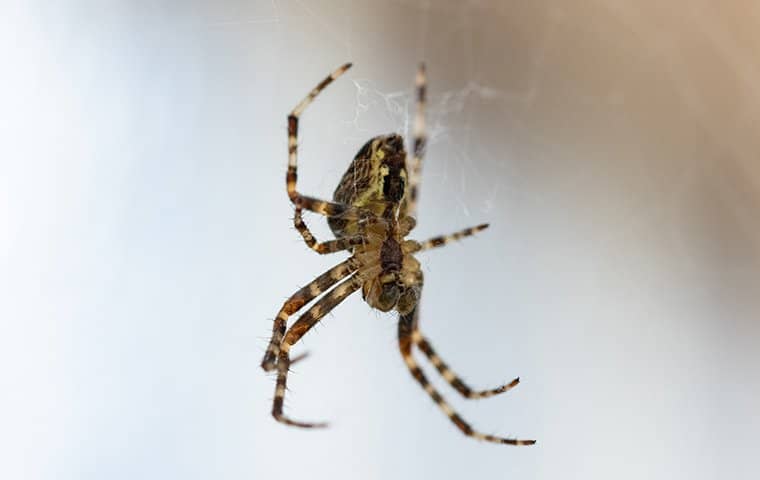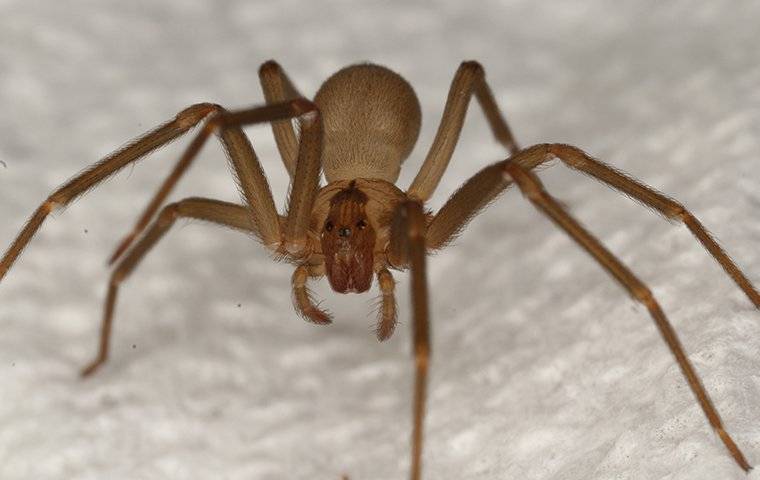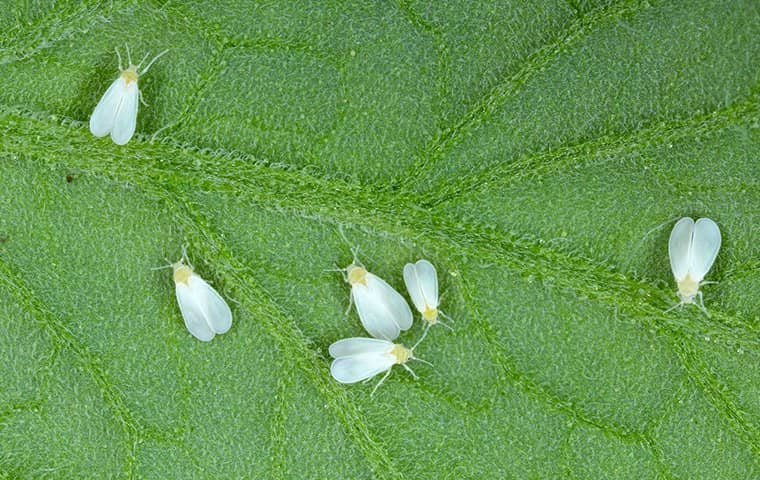
West Palm Beach's Ultimate Guide To Spider Control
March 31, 2024
Concerned about spiders in West Palm Beach? Discover how Empire Pest Defense can make your home spider-free!... Read More
Request Your Inspection Today! (561) 798-7216
Get StartedChances are, you’ve heard of the brown recluse spider around West Palm Beach, FL & surrounding communities before and know that an infestation of this pest is generally a pretty terrible thing to encounter. Classified as arachnids, brown recluse spiders fall into the family of Sicariidae, which refers to a group of spiders with six eyes and potentially dangerous necrotic bites.
You can identify the brown recluse spider by its six eyes, light to dark brown body and leg color, and its distinctive dark brown violin shape on its back. The more significant part of the violin starts behind its head, with the skinny neck of the violin pointing toward the cephalothorax, where the legs attach. This unique marking gives the brown recluse spider the nickname ‘fiddleback spider’ or ‘violin spider.’
Brown recluse spiders spin asymmetrical, irregular webs and leave these shelters to hunt their prey at night. In the wild, brown recluse spiders prefer to make their webs around woodpiles and trees, settling around secluded areas such as garages, basements, and cellars around human structures. They prefer cardboard because it mimics the bark of trees they would live on in the wild.

Brown recluse spiders are one of a few spider species in the United States, alongside the black widow spider, considered medically dangerous because the venom that the brown recluse spider distributes when they bite an individual is necrotic, meaning it can kill the skin. Other serious symptoms of a brown recluse spider bite include:
You should note that typically only children, the elderly, or those with preexisting conditions suffer extreme side effects of the brown recluse bite. Most individuals are generally fine as long as medical attention is received. If you suspect a brown recluse bite or experience any of the above symptoms, you should seek medical attention immediately.
You can follow some of these prevention tips to keep brown recluse spiders from invading your property and posing risks to you or those you love. Remember, the key to deterring spider infestations is to remove their easy access to food, water, and shelter:
If you are still struggling with a brown recluse infestation despite following these tips, it is likely time to call in the professionals at Empire Pest Defense. Only our experts can safely remove this pest from around your property and ensure the eradication of future infestations to regain your peace of mind. Contact us today and get started with our effective home pest control or commercial pest control services.
Complete the form below to schedule your no obligation inspection.

March 31, 2024
Concerned about spiders in West Palm Beach? Discover how Empire Pest Defense can make your home spider-free!... Read More

March 20, 2024
Is your West Palm Beach garden suffering from white flies? See how the pros at Empire Pest Defense can help restore its health.... Read More